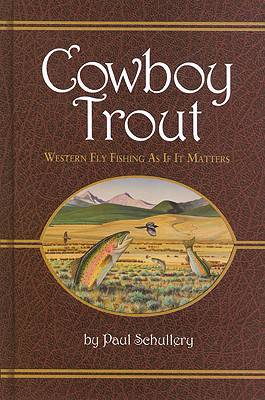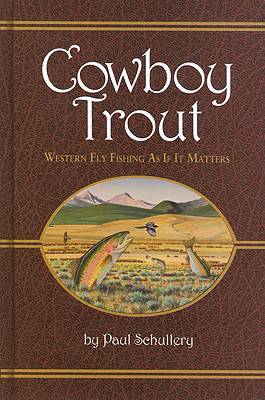
- Afhalen na 1 uur in een winkel met voorraad
- Gratis thuislevering in België vanaf € 30
- Ruim aanbod met 7 miljoen producten
- Afhalen na 1 uur in een winkel met voorraad
- Gratis thuislevering in België vanaf € 30
- Ruim aanbod met 7 miljoen producten
Zoeken
€ 27,45
+ 54 punten
Omschrijving
Fly fishing intersects western history in so many ways that it is surprising that more writers--besides historians--have not sensed its rhetorical and scholarly opportunities. As fly fishing's practitioners grow in economic power, political reach, ecological awareness, and clarity of need, those intersections will only become more compelling. In the fine tradition of angling books that celebrate fly fishing for the way it invites readers into unfettered ecological settings and connects them to the wonder of rivers, Paul Schullery's masterful Cowboy Trout raises to a new level of power the old saying that there is more to fishing than the catching of fish. The heightened sense of a wild place--not merely of the water but of a whole landscape-has turned out to be fly fishing's greatest gift to the West and to those who pursue fish in its rugged embrace.
Specificaties
Betrokkenen
- Auteur(s):
- Uitgeverij:
Inhoud
- Aantal bladzijden:
- 277
- Taal:
- Engels
Eigenschappen
- Productcode (EAN):
- 9780972152273
- Verschijningsdatum:
- 1/05/2006
- Uitvoering:
- Paperback
- Formaat:
- Trade paperback (VS)
- Afmetingen:
- 154 mm x 229 mm
- Gewicht:
- 408 g

Alleen bij Standaard Boekhandel
+ 54 punten op je klantenkaart van Standaard Boekhandel
Beoordelingen
We publiceren alleen reviews die voldoen aan de voorwaarden voor reviews. Bekijk onze voorwaarden voor reviews.











